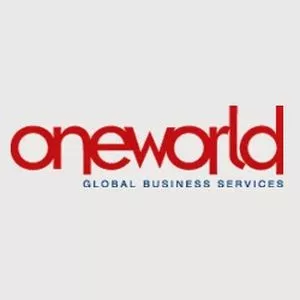A major problem faced today by trading corporations established in offshore jurisdictions is to satisfy the "economic substance" criterion. This is the case with corporations established in traditional offshore jurisdictions including the BVI, Cayman Islands, Belize, Antigua, Nevis, St Lucia, Vanuatu etc which were set up at a time that regulations and supervision were lax and no questions were raised.
Today, however, governments, tax authorities and bankers question the legitimacy of these entities, the conduct of their activities and serious questions are raised with regard to their management and control. The legitimacy of trading activities and the continuance of no tax for these offshore entities often making substantial profits with little or no taxes paid, are in jeopardy.
While countries differ to the extent to which they allow anti avoidance legislation, a clear direction has emerged that if an entity does not have economic substance, there is an increasing risk that it will not hold up upon review by governments and tax authorities and, therefore, will not achieve the intended tax benefits. Essentially substance is increasingly necessary to counter the argument that an entity or structure set up solely for tax reasons is artificial, or is not set up for bona fide reasons which can trigger the anti avoidance legislation.
Further, tax authorities are not looking only at the place where central management and control is exercised in order to determine where a company is taxable. In fact, they are also looking at the economic rationale behind a company in a particular country. More so, if it happens to be a low or no tax country.
An increasing number of tax treaties incorporate anti avoidance provisions. Transactions which lack commercial substance or not entered into for bona fide purposes, are caught by the provisions.
UAE and economic substance
The UAE is particularly well positioned to cope with the increasing requirements from governments, tax authorities and other institutions to provide real economic substance.
By making use of UAE free zones (FZ) and mainland structures through the establishment of active branches, it is now possible to locate business functions, realize tax savings and satisfy the criteria of economic substance which is very significant. There are opportunities for companies of any size to locate business functions in the country. It is hard to think of a place where it is easy and quick to set up a business as it is in a UAE.
The UAE is a white listed onshore jurisdiction that offers business opportunities that exist only in mature industrial and financial hubs. International companies moving to the UAE find themselves in a thriving market with excellent infrastructure.
Regulations are in place in the UAE to ensure that whilst attracting worldwide businesses and enhancing its name in international financial services they adhere to high professional standards and prevailing worldwide regulations.
A pro-business government encouraging foreign investment has also developed the country into a cosmopolitan centre welcoming a diverse specialist and competitive workforce. Further, Dubai has emerged as a popular jurisdiction for the relocation of high net worth individuals and a strong alternative to UK, Switzerland, Monaco, Singapore and other countries.
Special economic zones, FZ, mainland companies (LLCs) and branches offer 100 percent ownership, repatriation of profits and capital exemption from taxes and a wide network of 70+ double tax treaties.
The Global Competitiveness Index 2016-2017 published by the World Economic Forum (WEF) ranks the UAE as the 16th country in the world in terms of competitiveness.
UAE free zone (FZ) and mainland branches
Setting up an active branch in a FZ or the UAE mainland is often very attractive. The structure meets the growing necessity in international tax planning of having necessary substance. This is impossible to deliver from the traditional offshore jurisdictions since they typically only offer an IBC regime.
By establishing a branch in a FZ or mainland UAE of an existing offshore entity registered outside UAE – be that in BVI, Cayman Islands, Belize etc - and having a flexi office, employing 1-2 local persons, the company is able to:
- continue unhindered activities from the UAE
- satisfy the criterion of economic substance and ensure legitimacy/acceptance of activities
- meet the requirements and satisfy the concerns of authorities and bankers
- as UAE is a no tax jurisdiction, pay no tax on profits
- take advantage of UAE's 70+ double tax treaties
General advantages of setting up a branch in the UAE include:
- 100 percent foreign ownership
- no restriction on profit repatriation
- no exchange controls
- guarantee of no corporate and personal income taxes for 15-50 years and possible renewal
- availability of offices, factory premises and warehouses
- excellent port, airport and road transport infrastructure
- efficient utilities and communication means no recruitment restrictions and assistance in obtaining work permits for expatriate staff
What we can do for you
We can consider your circumstances and proceed to advise you as to the most efficient options suitable to you. We will liaise with you and agree together a workable, tax efficient structure in line with your goals and expectations. Following this, we can set up your structure and assist you to register with government departments and authorities and provide other support services including finding suitable office accommodation, recruitments, banking etc, as to be required. Clients can expect a high degree of personal attention from Oneworld MidEast. We deliver day to day, bespoke services and solutions.
The content of this article is intended to provide a general guide to the subject matter. Specialist advice should be sought about your specific circumstances.

